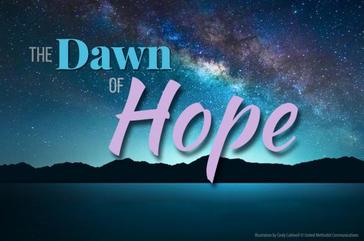
December 24, 2018 – Christmas Eve
© the Rev. Dr. James Campbell
Luke 2:8-20
In that region there were shepherds living in the fields, keeping watch over their flock by night. Then an angel of the Lord stood before them, and the glory of the Lord shone around them, and they were terrified. But the angel said to them, “Do not be afraid; for see—I am bringing you good news of great joy for all the people: to you is born this day in the city of David a Savior, who is the Messiah, the Lord. This will be a sign for you: you will find a child wrapped in bands of cloth and lying in a manger.” And suddenly there was with the angel a multitude of the heavenly host, praising God and saying, “Glory to God in the highest heaven, and on earth peace among those whom he favors!” When the angels had left them and gone into heaven, the shepherds said to one another, “Let us go now to Bethlehem and see this thing that has taken place, which the Lord has made known to us.” So they went with haste and found Mary and Joseph, and the child lying in the manger. When they saw this, they made known what had been told them about this child; and all who heard it were amazed at what the shepherds told them. But Mary treasured all these words and pondered them in her heart. The shepherds returned, glorifying and praising God for all they had heard and seen, as it had been told them.
As a child, I had a very rich interior life. I loved to spend time alone in my room. I would lie on a hillside in our yard, stare at the sky, and get lost in the clouds for hours. In school, I was often scolded for daydreaming. And I fell in love with books - because books had the ability to take me even deeper into that interior world.
A few years ago, it struck me that I hadn’t read a work of fiction in several years. And I found that realization deeply disturbing, given my life-long love of books. So, I bought a novel and set out to read it. But I kept losing interest. I would read one paragraph and then not have any idea of what I had just read because I was always thinking of something else. And so, I put that book aside and bought another one. But the same thing happened because I was always thinking of something else. I was always multi-tasking – this thing we’re constantly being told to do. And this brought me to the sad conclusion that I had lost one of the great pleasures of my life – the ability to ponder. I had forgotten how to be quiet and allow my thoughts to run where they would.
At first, I feared that this inability to concentrate might be a sign of illness. It was, but not in the way I thought. I was the victim of my electronic addiction. I was a victim of the relentless battles for my attention; the relentless onslaught of bad news; the relentless barrage of advertising. In place of a book, I always had a device in my hand. I went to bed with a device in my hand. I was still reading a lot, but never one thing for very long because something else was always clawing for my attention. Maybe you know what I mean.
Perhaps the worst part of that is that as our capacity for concentration has decreased, our capacity for fear has increased. With each click, we are confronted with more bad news, and then worse news. So then we click and shop or we click and flirt. Why do we do it? Why this constant connection; this constant distraction? I think we do it because we are deeply afraid of silence. We are afraid of our own thoughts.
In that region there were shepherds living in the fields, keeping watch over their flock by night. Then the angel of the Lord stood before them, and the glory of the Lord shone around them, and they were terrified. But the angel said to them: “Do not be afraid.”
“Do not be afraid.” This is the most-often repeated command in the entire Bible – far more than don’t kill or don’t steal or love one another? And yet we don’t really take this commandment seriously. The best we seem able to do is to put our fears on hold for a few days, mostly by activities or diversions. Most of us will do that with Christmas, as we eat, drink, and make merry. But on Wednesday, there will be some breaking news that demands our attention. On Wednesday, there will be credit card bills. On Wednesday, there will be doctor’s appointments and work conflicts and family arguments. Tonight and tomorrow, we make merry. But what about Wednesday when all the excitement is over?
After the shepherds stopped fearing for their lives, the angel told them where Jesus was. And then a choir of angels sang “Peace on earth!” When that spectacle was over, the shepherds set out to find this baby. And Luke says that they went with haste – excitement crackling in the air. And they found the Holy Family. And they told them what the angels had said about this Child, the words tumbling out of their mouths as they spoke over one another. After all, this was the most exciting thing that had ever happened to them.
But Mother Mary’s reaction to this incredible news was completely different from the shepherds. Luke says that Mary “treasured all these words and pondered them in her heart.” And that strikes me as really significant as all the emphasis is put on glory and angels and shepherds and stars. Why doesn’t Mary shout for joy at the words of the shepherds? How did pondering help her to frame her reality?
It’s a good question because Mother Mary’s reality was challenging to say the least: still a young teenager, a new mother, with a very confused husband, disappointed parents, a life-time of poverty on the horizon, living under an oppressive government, being a second-class citizen. What did pondering do for her?
I think it made room. I think it created space in her heart and in her mind for something new. Her fears were still there, but now there was also room for the promises of God. There was room for faith.
And that, it seems to me, is the key for how we actually obey this commandment to fear not. It is not by filling our minds with as many diversions as we can. It is not by filling our lives with noise and accumulation of things and the bolstering the illusions of control. We learn to “Fear not” by making room for the Word of the Lord to dwell with and interact with all those things that frighten us.
And what is that Word that Mary pondered? Well, it became flesh and lived among, full of grace and truth. That Word was born into poverty to teach us the real riches of living. That Word healed the sick and fed the hungry and touched the unclean. That Word upset religious and social conventions that got in the way of mercy. That Word wept at the tomb of a friend, and danced at a wedding, and died a very human and painful. And that Word rose to new life in the midst of fear.
I did learn to read fiction again, but it took time and practice. I had to work at it and be deliberate about it. --I’m still working on not being afraid, but I’m getting better. I’m learning to make room for the Word of the Lord. And Mother Mary continues to show me the way.


 RSS Feed
RSS Feed